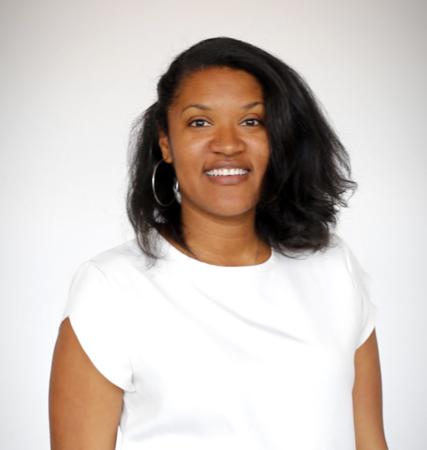The job-hunting process can be a harrowing experience, especially as the economy continues to shift in unpredictable ways. Landing an interview is a great opportunity to show a potential employer everything that makes a candidate shine.
However, for many Black and brown professionals looking to break into tech, this process can be particularly complicated as they discover there are levels to the concept of “bringing your whole self” into the professional sphere. So many companies at different scales spout a doctrine of diversity while still fostering norms and a culture of professionalism that leave many candidates of color feeling excluded, undervalued and invisible.
For too many of those candidates, there’s an implicit understanding that, to get hired, they have to hide many crucial parts of their identity to be seen as a viable candidate — creating undue racially biased pressure on them.
To bridge this cultural gap and reduce turnover, companies are looking for better solutions that allow employees of all races to better represent themselves authentically in the workplace. One place putting in the work to create an environment of authenticity for Black and brown candidates is CrowdStrike, a growing cybersecurity company looking to create a lasting change in the tech world.
We caught up with two CrowdStrike team members from both sides of the recruitment table who share their experiences as Black professionals in tech and provide some insights into how up-and-coming candidates can ace their interviews as their whole selves.

Tim Brown, Senior Engineer
Tim is a veteran Senior Engineer who’s been at CrowdStrike since 2019 and has over a decade of experience working in tech. He admits that the lack of diversity within the industry can create a feeling of isolation and self-doubt for Black tech professionals at any stage in their career. “You do get a sense of being the only Black person in the room sometimes,” he says.
Navigating this dynamic can often lead to code-switching, or any number of alterations in speech or behavior that fall on employees of color in particular. And while this isn’t a singular phenomenon, having to regularly be conscious of this dynamic creates other challenges. “It takes energy,” Tim says. “I’ve ended up withholding ideas at times. I always end up thinking, ‘Who knows what could have happened if I had let myself be myself?’ It can definitely hold you back.”
For this reason, Tim is a firm believer in starting off at a company with authenticity. Bringing your whole self into an interview sets future employees off on the right foot and ultimately gives them freedom. He recalls a friend and former coworker: “He was this brilliant dude. He had cornrows and an Enyce shirt on, and he always had all these people around him. He could just be himself, and people listened to him.”
For candidates looking to break into the game, he offers this advice: “The person who hired you hired you [as you are]. By being yourself, you’ll be a much happier person in all contexts of life.”

Julie Slater, Senior University Recruiter
Julie, a Senior University Recruiter for CrowdStrike, emphasizes the importance of companies creating equitable hiring practices. This starts with visibility, which has a huge impact on the up-and-coming Black and brown candidates she interviews. “The people of color that I’ve interviewed always say to me, ‘It’s really nice to see someone who looks like me interviewing me!’” That’s how she knows representation in recruitment is a crucial part of fair and equitable hiring.
Of course, interviewing for a job is only the first step. Once those candidates become a part of the organization, there’s still a lot of work to ensure those workplaces hold space for employees to continue showing up completely and authentically every single day. “This is about feeling safe in a space to be yourself and to fully express yourself in a way that you feel you would be understood,” Julie says. She notes this can be a huge hurdle for many employees of color, and companies need to address this at the ground level if they are to retain candidates.
Julie and the rest of the recruiting team at CrowdStrike have been focusing recruitment efforts on the HBCU circuit, creating multi-dimensional opportunities for those college grads to enter into a workforce they may not have had access to before.
Nailing Your Tech Interview
For those candidates looking to break into the tech industry, Julie lists some ways to bring their best self — and their A-game — to interviews, giving them the best shot possible at landing their dream job in tech.
-
-
- Perfect the cover letter. The cover letter tells your story in ways your resume never can. Julie advises candidates to use the cover letter as a tool to provide a holistic view of their success beyond what’s listed in the resume.
-
- Get active. She encourages any student — especially students of color — to participate in industry opportunities in any way they can: through hackathons, extra courses or clubs, especially clubs in tech or cybersecurity, since there are so many opportunities there.
-
- Practice the pitch. It’s all too easy to get caught up in the moment, especially when nerves are involved. Candidates should make sure to utilize opportunities to practice their pitch and take down some notes of important points beforehand.
-
- Be authentic. Yes, candidates really should be themselves. Recruiters want to get to know the real person behind the resume, and vulnerability and openness can actually work in a candidate’s favor.
-
In short, Julie says, “I want to hear about you. Be buttoned up, of course; I mean, why can’t authenticity be synonymous with professionalism? But make sure it’s a conversation, not just Q&A.”
CrowdStrike is actively looking to create opportunities to close the gap between Black candidates and their dream tech jobs. The cybersecurity company wants to put its money where its mouth is by hiring and retaining brilliant Black talent and exceptional candidates of color. Learn more about CrowdStrike’s mission and how to become a part of the growing team.

















